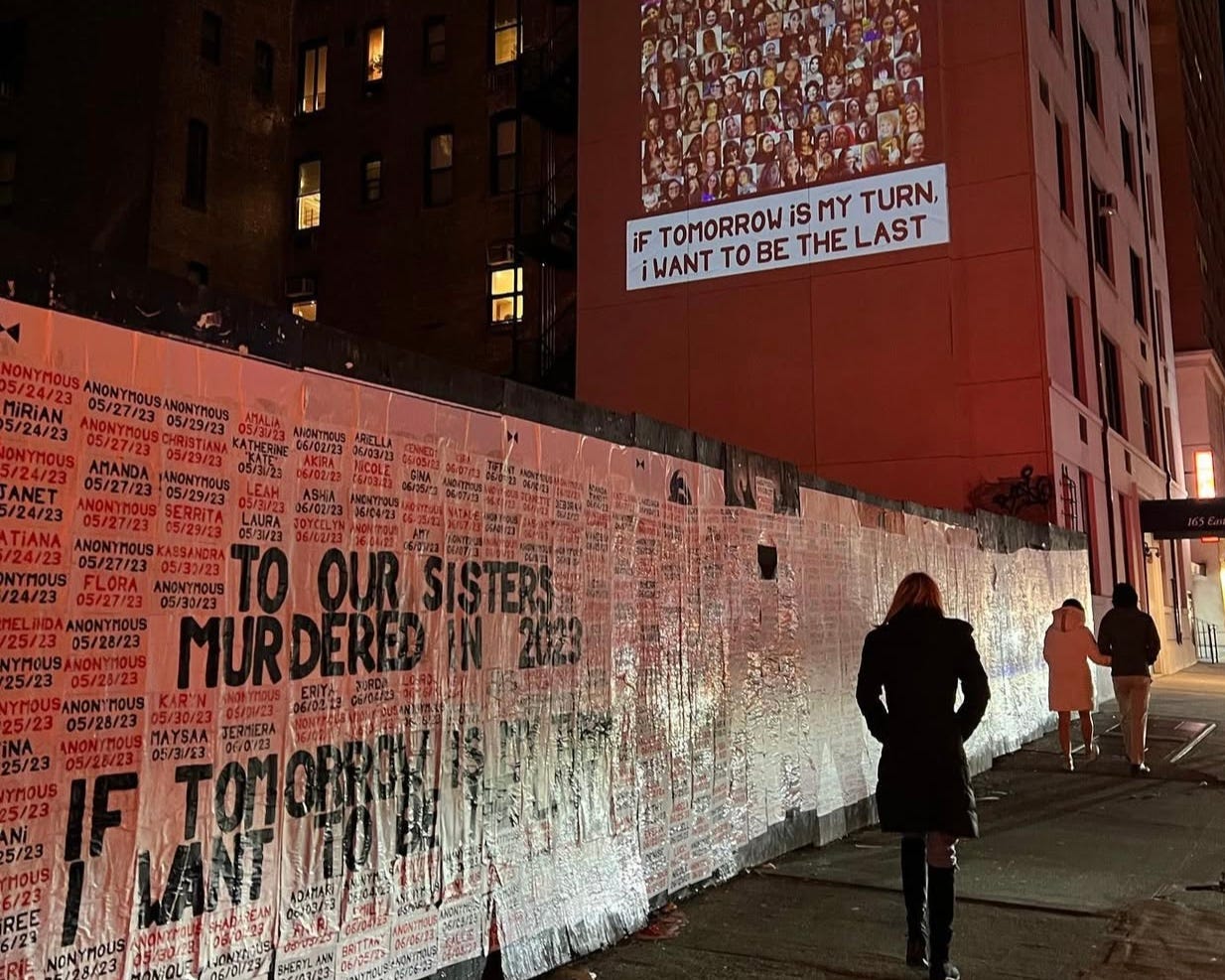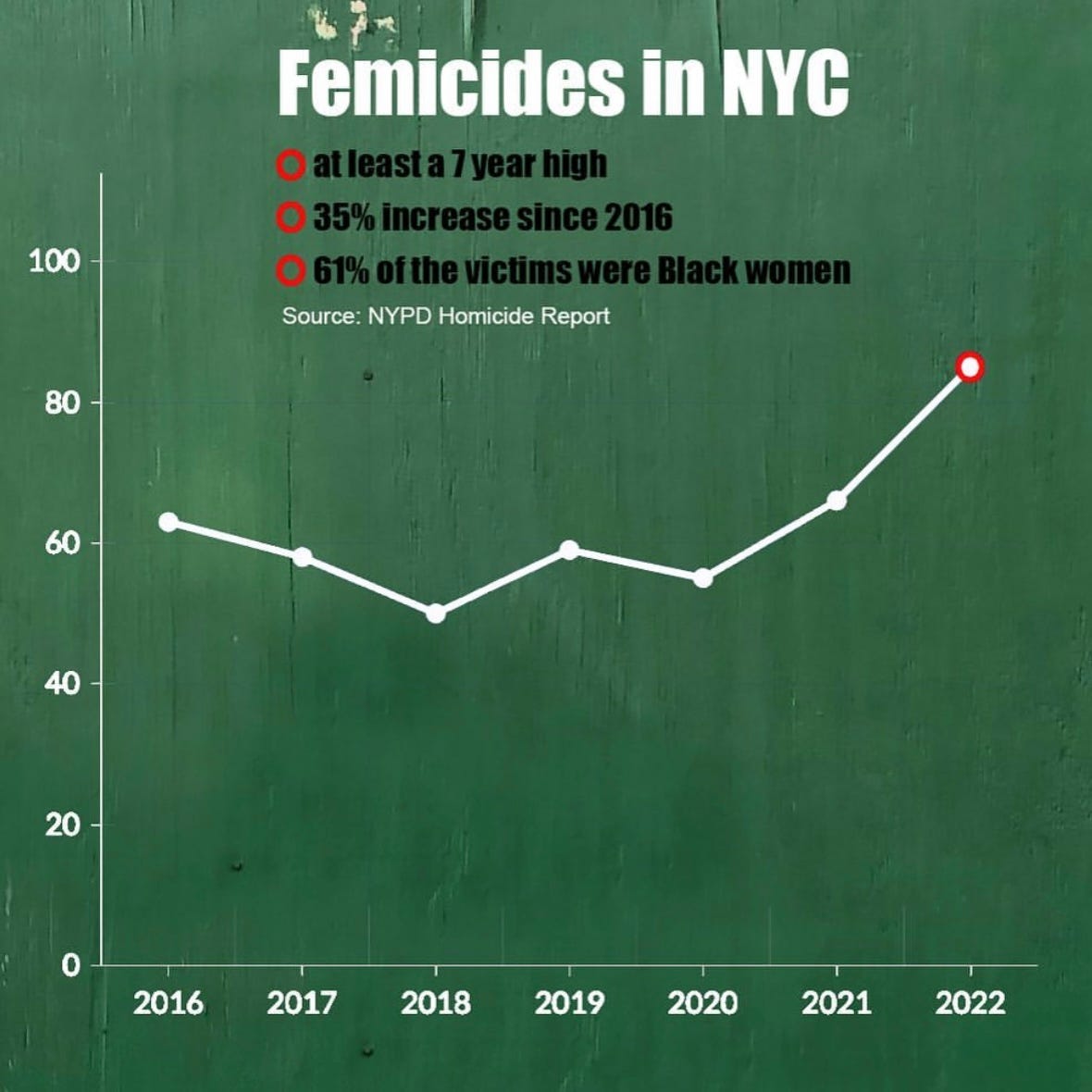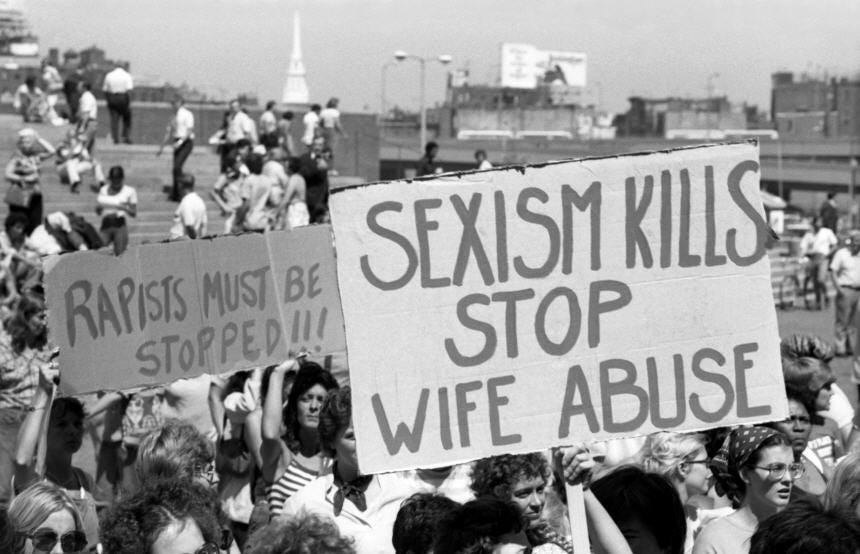Femicides in New York City: A Crisis of Violence Against Women in 2025
A Suitcase in the Bronx, an Electrical Cord in Queens, a Gun in Brooklyn. How Many More Women?
Pamela Alcántara, 26
When a red suitcase was discovered abandoned near the Bronx-Yonkers border on March 7, 2025, New York woke up to yet another horror story. Inside lay the lifeless body of 26-year-old Pamela Alcántara, a woman from the Bronx who recently fled from an abusive relationship, only to be brutally killed and discarded.
Her 46-year-old ex-boyfriend allegedly ambushed her as she was preparing to move out, strangled her, and then crammed her body into a suitcase before disposing of her body in a suitcase and tossing it on the side of Palmer road.
Juliet Kashidas-Singh, 64
With an electrical cord found around her neck, 64-year-old Juliet Kashidas-Singh was found dead on the front stoop of her Ozone Park, Queens home on February 27, 2025. Police quickly arrested one of her former male employees and charged him with murder.
Investigators determined that the alleged perpetrator attacked her in a dispute over $300 of back pay. The medical examiner ruled her death a homicide caused by strangulation and beating. The case drew outrage in the neighborhood, as the victim was an older woman well-liked in the community.
Celina Ramos, 32
On February 11, 2025, a young woman was heard screaming for her life on a Bushwick, Brooklyn sidewalk until gunshots silenced her forever. Celina Ramos was shot and killed by her 41-year-old boyfriend before he turned the gun on himself in an alleged case of murder-suicide.
Neighbors reported hearing the woman screaming in the early morning hours before multiple gunshots rang out. The couple had reportedly only been dating a few months, underscoring the lethal risk present even in short-term relationships and how domestic violence disputes can erupt in public spaces.
One month. Three women. Three horrifyingly personal acts of violence. Each one a devastating reminder of the deadly cost of misogyny and domestic abuse in New York City.
Yet these three incidents are not isolated cases. They are part of a larger and broader crisis.
Violence Against Women in New York City
New York City faces a high volume of domestic violence incidents. In 2022 alone, nearly 120,000 domestic violence incidents were reported to the New York Police Department (NYPD), an alarming increase from previous years. Police respond to an average of 600 domestic violence calls every single day in New York, among countless other cases that go unreported.
Since 2020, domestic violence has accounted for over 27,000 felony assaults, nearly 2,000 reported rapes, and roughly 190 murders across the five boroughs. In 2022 specifically, NYC witnessed an uptick in intimate partner murders: 31 intimate partner homicides occurred in 2022 (up 29% from 24 in 2021). Out of those 31 cases, 26 victims were female and 5 were male.
There were 854 domestic violence-related homicides, between 2010 and 2022, making up nearly 17% of all murders citywide.
From New York City to the Nation
Femicide is by no means unique to New York but part of a nationwide epidemic of violence against women.
Nationally, one woman is murdered every six hours in the United States, often after years of escalating abuse. An estimated 55% of all women murdered in the U.S. are killed by a current or former intimate male partner.
The most dangerous time for a woman in an abusive relationship is when trying to leave, as exemplified in the cases of Pamela Alcántara and Celina Ramos.
While domestic violence remains the primary cause of femicide, a new and terrifying trend of misogynistic extremism is emerging.
Law enforcement and terrorism experts have noted the overlap between anti-woman hatred and mass violence. The Federal Bureau of Investigation (FBI) now tracks gender-motivated killings in its crime statistics and considers violent misogyny as a form of hate that can lead to terrorism. Additionally, in 2009, U.S. federal hate crime law was expanded to include gender as a protected category.
A System Struggling and the Fight for Women’s Safety
The 1994 Violence Against Women Act (VAWA) was a landmark law which provided federal resources for investigating and prosecuting domestic violence and sexual assault, funded shelters and victim services, and encouraged coordinated community responses for both female and male victims of domestic violence.
Yet, domestic abusers in many states still have access to firearms while the presence of a gun in a domestic violence dispute increases the likelihood of murder by 500%. Orders of protection exist, but many women are murdered immediately after filing for one. Cases of domestic violence soared during pandemic lockdowns and homicide is the leading cause of death for pregnant women in the U.S.
Women have refused to go down without a fight.
From the Battered Women’s Movement of the 1970s to today’s advocacy groups, women have been on the front lines, demanding change. Organizations like Safe Horizon, Sanctuary for Families, and the NYC Anti-Violence Project are providing shelter, legal support, and crisis intervention for survivors.
New York City has taken steps in the right direction, but evidently it’s not enough. Women are still being killed.
On both local and national levels, activists are pushing for:
Stronger gun restrictions for domestic abusers
More funding for domestic violence shelters and victim services
Greater legal protections for stalking and harassment victims
More training for police to handle gender-based violence
The brutal murders of Pamela Alcántara, Juliet Kashidas-Singh, and Celina Ramos are not just tragedies; they are warnings. Warnings that New York City, despite its reputation for progress, is failing to protect women from the people they should arguably feel the safest with.
Women should not have to live in fear.
New York City, and indeed the United States, must do better.
If you or someone you know is in danger, help is available:
NYC Domestic Violence Hotline: 1-800-621-HOPE (4673)
National Domestic Violence Hotline: 1-800-799-SAFE (7233)
Safe Horizon 24/7 Hotline: 1-800-621-4673




